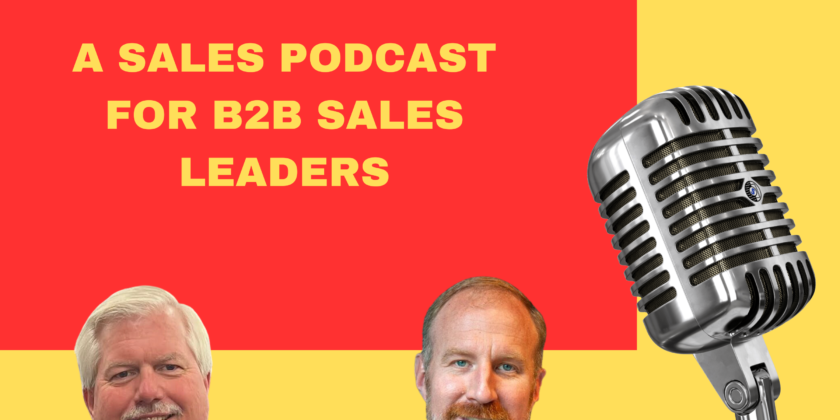In this episode of Two Tall Guys Talking Sales, hosts Sean O’Shaughnessey and Kevin Lawson delve into the crucial difference between a Marketing Qualified Lead (MQL) and a Sales Qualified Lead (SQL). They explain how the two require different types of messaging and engagement and highlight the importance of refining the process of transitioning leads from one category to another.
Key Topics Discussed
- Differences between MQLs and SQLs: Kevin begins the episode by comparing the difference in approach between MQLs and SQLs to the difference in speaking to a large group vs. one-on-one conversations. The messaging and engagement are distinct, and as an MQL transitions into an SQL, the engagement becomes more personalized and directed.
- Avoiding Pipeline Clutter: Sean reflects on instances when leads aren’t adequately transitioned from marketing to sales, causing clutter and inefficiency in the sales pipeline. He emphasizes the importance of discerning when a prospect needs more time to be ready to progress in the sales process and re-engaging them through marketing efforts.
- Sales-Marketing Synergy: Kevin stresses the need for sales and marketing teams to collaborate efficiently. Sales leaders should be grateful for the groundwork done by marketing teams as they set the stage for more specific conversations with leads.
- Understanding Lead Progression: Kevin and Sean recommend salespeople understand a lead’s journey from an MQL to an SQL. Knowing how a lead has interacted with the brand helps salespeople improve lead quality and engagement.
- The Importance of Problem Identification: Sean insists on the importance of early identification of the problem you’re solving for the lead. If the salesperson is convinced they can solve a specific issue, the lead becomes an SQL, and the task shifts to convincing the customer of the solution.
Key Quotes
- Sean: “Sales brings in revenue. Customers get a product in return, and that keeps everybody employed and going forward.”
- Kevin: “Marketing and sales all have the same goal, sell more. It’s how we stay employed.”
Additional Resources
- ‘The Sales Acceleration Formula’ by Mark Roberge, mentioned by Kevin as a recommended read.
This episode is a must-listen for those looking to understand the crucial transition from MQLs to SQLs, how to avoid pipeline clutter, and the importance of a symbiotic relationship between sales and marketing. Whether you’re in B2B sales, a startup, or an established company, you’ll find invaluable insights to apply to your sales processes.





